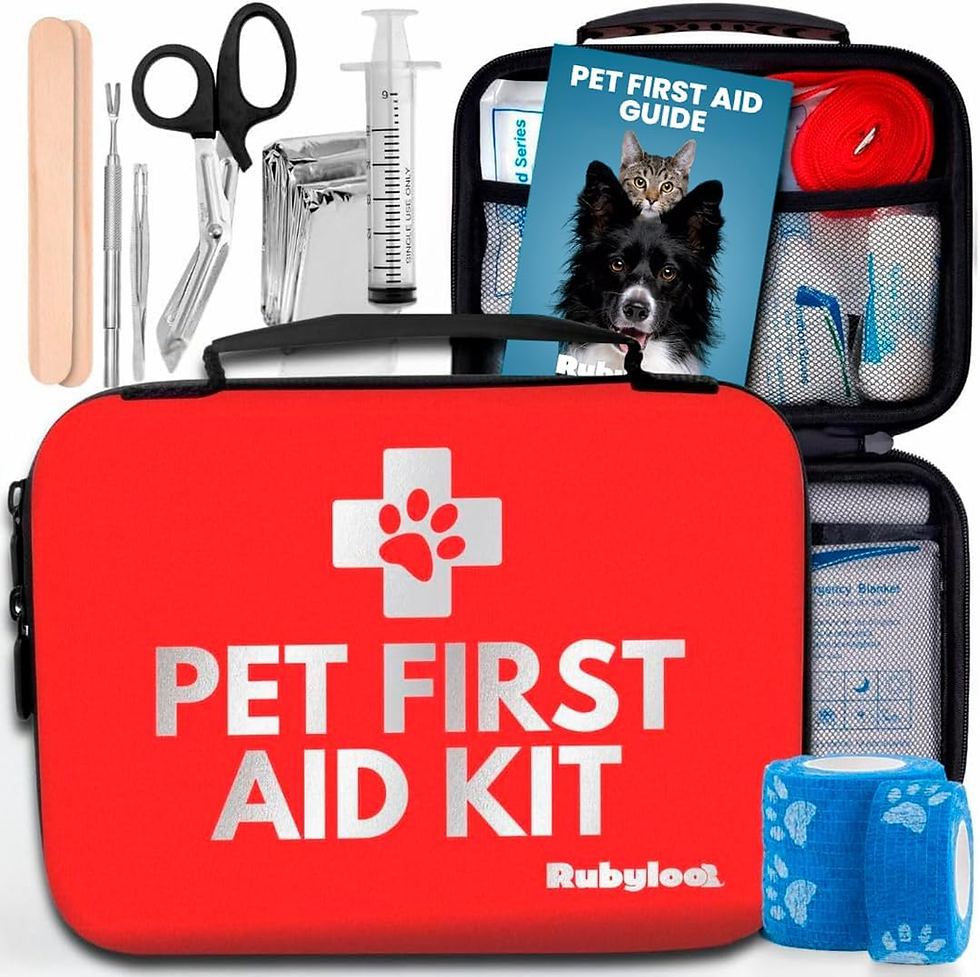The Ultimate Pet First-Aid Kit: What Every Owner Needs to Have
- Twin Tails
- Sep 15, 2025
- 2 min read
Emergencies can happen in an instant, and being prepared is the best way to protect your furry family member. A well-stocked pet first-aid kit can make a huge difference, whether you're at home or on the road. Knowing you have the right tools can give you peace of mind and help you act fast when every second counts.
Here’s a checklist of what every pet owner should have in their first-aid kit.

Essential Medical Supplies
These are the core items for handling common injuries and health issues.
Veterinary Contact Information: Always keep your vet’s phone number and the number for a 24-hour emergency animal hospital handy.
Sterile Gauze and Non-Stick Pads: For covering wounds and controlling bleeding. Get a variety of sizes.
Adhesive Tape: Medical or self-adhering tape to secure bandages without sticking to your pet’s fur.
Antiseptic Wipes or Solution: Pet-safe antiseptic to clean wounds. Never use human products like hydrogen peroxide or rubbing alcohol as they can damage tissue.
Tweezers: For removing splinters, ticks, or other small objects.
Digital Thermometer: A pet-specific rectal thermometer for checking their temperature.
Scissors: Small, blunt-tipped scissors for cutting gauze or tape.
Disposable Gloves: To protect both you and your pet from germs.
Basic Tools & Comfort Items
These items are useful for a variety of situations beyond just medical emergencies.
Leash and Muzzle: An extra leash is always good to have. A muzzle (even if your pet is usually gentle) can be crucial if they are in pain and might snap.
Blanket or Towel: A blanket can keep a pet warm if they are in shock or can be used as a makeshift stretcher.
Pillars or Syringe (Without Needle): For administering liquid medication or water.
Headlamp or Flashlight: For examining your pet in low-light conditions.
Important Medications (Consult Your Vet First)
Before adding any medication to your kit, it's vital to speak with your veterinarian. They can recommend the correct dosage and type of medication for your pet.
Prescription Medications: If your pet has a chronic condition, keep a small, extra supply of their regular medication.
Medicated Ointment: An antibiotic ointment for minor scrapes, as recommended by your vet.
Activated Charcoal: Can be used to absorb certain toxins, but only under the direct guidance of a veterinarian.
Final Tips
Store It All in One Place: Use a durable, waterproof container. A small backpack or plastic box works well.
Keep It Accessible: Store the kit in a spot you can easily grab, like a closet near the door or in the trunk of your car.
Check Expiration Dates: Review the contents of your kit every 6-12 months and replace any expired items.
Having a pet first-aid kit is not just about being ready for the worst; it’s about being a responsible pet owner. Being prepared means you can handle minor issues quickly and have the necessary tools to stabilize your pet on the way to the vet in a more serious situation.




Comments